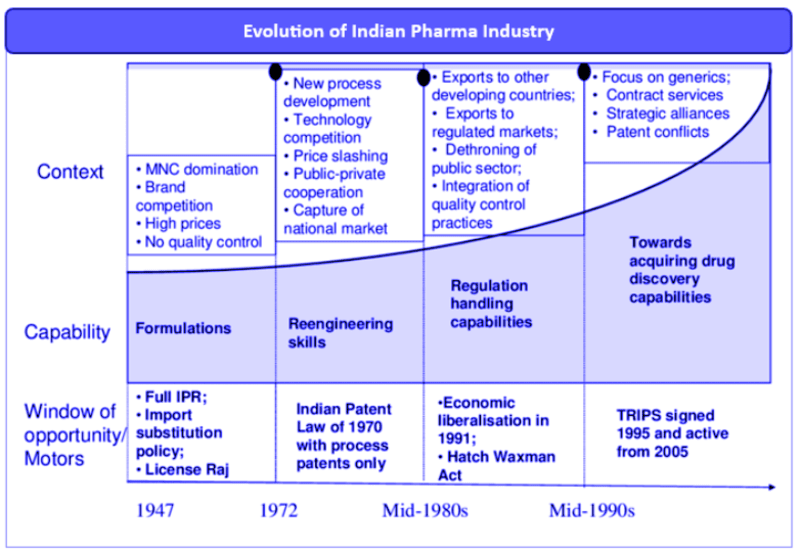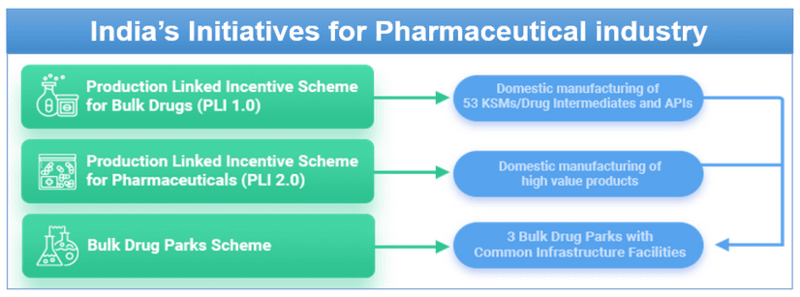India must save the reputation of its pharma industry
News Except:
Recently few countries have accused ‘Made in India’ medicines of causing deaths, blindness and severe injury to their citizens. Separate and apart from these tragedies in foreign jurisdictions is the fact that Indian doctors protested against a new rule introduced by the National Medical Commission (NMC) mandating that all doctors write prescriptions with only the generic names of drugs and not brand names. The reason for the pushback was the apparent lack of faith amongst doctors on the quality of all generics sold in the Indian market.

Concern Regarding Quality of Made in India Medicine:
- Quality Control and Testing: The instances of adulteration leading to fatalities in India and other countries suggest a systemic failure in quality control measures. The need for rigorous inspections, adequate testing equipment, and qualified personnel within manufacturing facilities is crucial. While mandating testing for exported cough syrups is a step, it's insufficient.
- The focus should also be on ensuring domestic products meet the same standards to safeguard Indian patients.
- Doctor Opposition to Generic Prescriptions: The lack of faith among doctors in prescribing only generic names stems from concerns about therapeutic equivalence and quality variations among generics.
- This distrust affects patient access to competitively priced medicines. Instead of addressing these concerns, the government paused the new rule, missing an opportunity to educate and engage doctors and the public on the benefits and quality assurances of generics.
- Regulatory Framework and Legislation: The Drugs, Medical Devices, and Cosmetics Bill of 2023 seems to overlook fundamental issues highlighted by expert committees.
- The absence of a centralized regulator and a proposal for an independent, skilled regulatory setup remain unaddressed.
- Harmonizing regulations across states and empowering a competent central regulator could enhance oversight and consistency in drug quality.
- Reputation and Global Impact: Ineffective regulation not only impacts public health but also damages the reputation of India's pharmaceutical industry globally.
- This has led to repercussions, such as the US contemplating onshoring pharmaceutical manufacturing and African nations aiming to reduce dependence on Indian imports.
- This threatens India's position as the "pharmacy to the developing world."
Addressing the challenges:
- Enhanced Oversight: Invest in robust inspection processes, quality control measures, and training to ensure compliance with stringent standards for both domestic and export markets.
- Education and Engagement: Communicate transparently with doctors and the public regarding the benefits and quality assurances of generic medicines, fostering trust in domestically produced drugs.

- Regulatory Reforms: Revise legislation to establish a centralized regulator with specialized skills and resources to standardize and enforce drug quality nationwide.
- Global Reputation Management: Prioritize rebuilding trust by actively addressing quality concerns and complying with international standards to maintain India's status as a reliable pharmaceutical supplier.
Conclusion:
The concerns raised regarding the quality of 'Made in India' medicines, both domestically and in international markets, highlight critical issues within the pharmaceutical industry that need urgent attention and resolution. The Indian government must prioritize a holistic approach, considering both public health and the industry's global standing. Addressing structural issues, enhancing regulatory measures, and fostering trust in 'Made in India' medicines are pivotal for a sustainable and reputable pharmaceutical industry.

